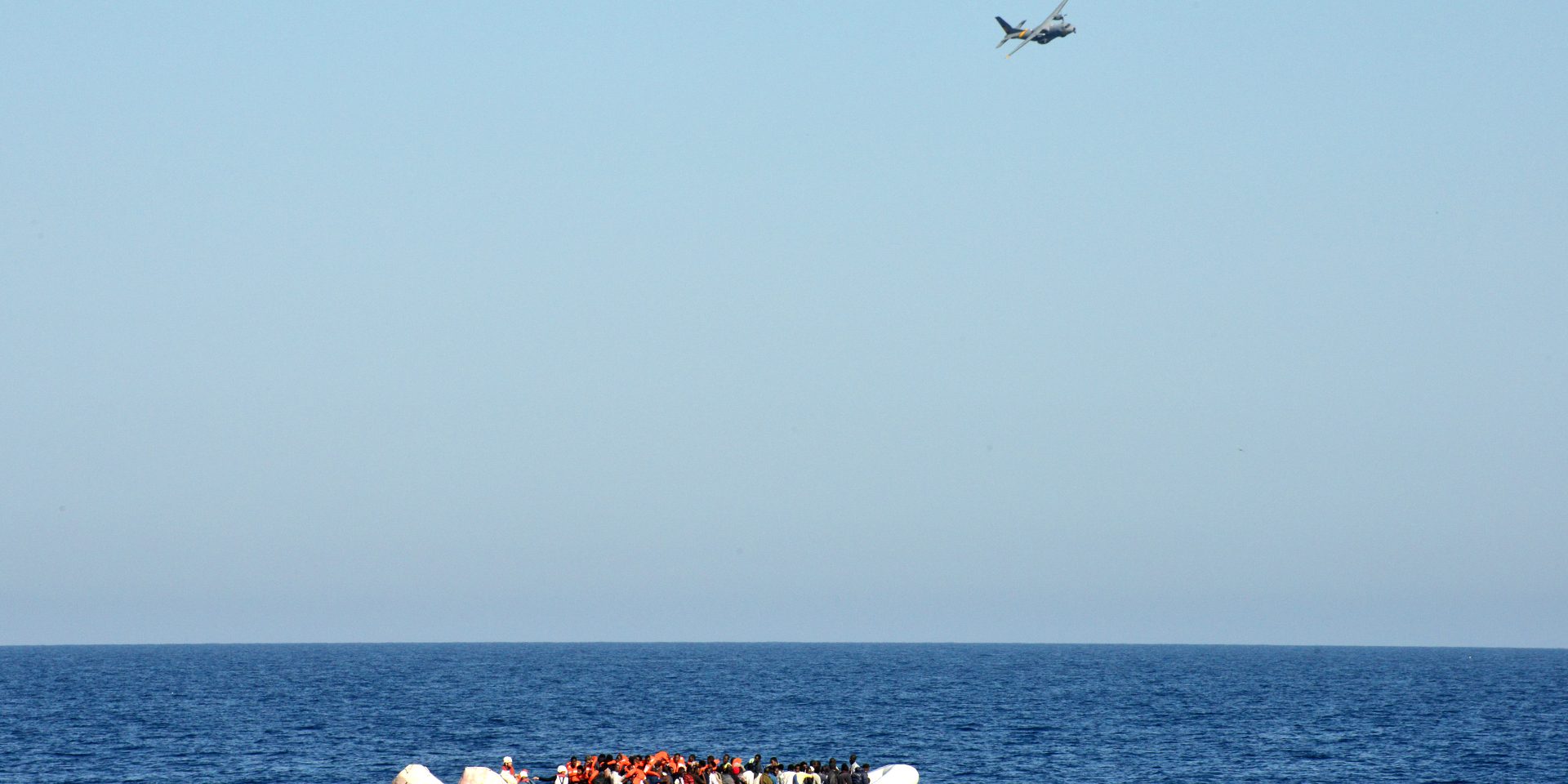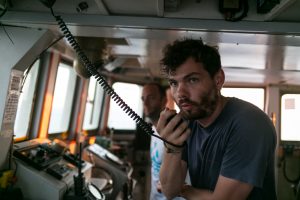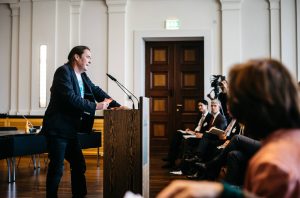At an informal meeting in Valletta on February 3rd 2017, the 28 EU heads of government will come together to discuss the external dimensions of migration. The main focus will be on the Central Mediterranean route and Libya. Various topics on the agenda are highly problematic. The aim of the summit is to seal off the external borders of the EU even further and prevent so-called “irregular migration flows”.
Will there be a relaunch of the EU-Turkey-Deal in Libya?
The Maltese Prime Minister Joseph Muscat demanded a pact along the lines of the EU-Turkey deal. Malta’s proposal went so far as to suspend the international principle of “non-refoulement” in crisis situations. Even the Commissioner for Migration Dimitris Avramopoulos rejected this proposal citing the political instability in the North African state: “We cannot duplicate the EU-Turkey statement, the situation is not similar in Libya.”
According to the International Organization for Migration (IOM), the Mediterranean Sea was the deadliest border of the world in 2016. It is cynical to talk of success in this context as the German Minister of the Interior Thomas de Mazière did during this year’s first cabinet meeting (transl. from German): “The measures of the Federal Government are having a visible impact. We succeeded in regulating and controlling migration and in restricting the number of people coming here.” However, since March 2016, the agreement with Turkey has led to numerous human rights violations as Pro Asyl highlight in their report “The EU-Turkey-Deal and its consequences”: “In Turkey, massive human rights violations are a daily occurrence. War against the Kurdish population, imprisonment of journalists and human rights activists on a huge scale, deportations of refugees to war-torn and civil war countries in violation of international law – all this is a manifestation of an increasingly authoritarian regime.” (translated from German)
If the EU continues to seal off the Mediterranean route, migrants in Northern Africa are exposed to a similar situation. “Whoever prevents humans to flee torture clearly has not understood the concept of a safe passage. We demand concrete actions for a safe passage!”, says Sea-Watch CEO Axel Grafmanns.
What is the situation in libyan camps like?
In December 2015, the human rights organisation Amnesty International already described the disastrous circumstances in Libyan detention centres. Nothing has changed: According to the United Nations Commission on Human Rights (CHR) many Libyan camps are marked by “chronic overcrowding, poor sanitation and health care and insufficient food” (report from January 2015). Those facts have been known for years but remain ignored. Only last week, when German diplomats criticized the “concentration camp-like conditions in the so-called private prisons”, an appropriate outcry followed. “Now that the German Foreign Office explicitly named the human rights violations in Libyan detention centres, the government has the obligation to finally take action”, states physician Frank Dörner, member of the board at Sea-Watch.
Why an injection of capital into the Libyan coastguard is questionable
In 2017, a year marked by important elections, the European Council wants to stop migration along the Central Mediterranean Route, rather than taking a stand for improving the dramatic situation on the Libyan mainland. Following a proposal by the High Representative of Foreign Affairs and Security Policy Federica Morgherini, the informal gathering is expected to decide upon investing an additional 200 million Euros to train the self-styled Libyan coastguard and to combat human trafficking.
In August, a first deal between EUNAVFOR MED “Operation Sophia” and the Libyan coastguard and navy was struck. The success of training measures so far is doubtful considering that there have been violent clashes between coastguard and civilian search and rescue teams. “We want a coastguard that is trained for rescue missions, not one that endangers refugees lives’ at sea”, explains Sea-Watch Head of Mission Johannes Bayer. During last year’s missions, Sea-Watch witnessed that the self-styled “Libyan Coast Guard” is divided into clan militias that occasionally cooperate with human traffickers. Can that be a solution: Brutal militias as Europe’s partners? (cf. German TV clip at WDR Monitor ‘Brutale Milizen als Partner Europas?‘ – 19.01.2017)
Europe’s borders in Africa
As the Sea-Watch-supported research project ‘Migration Control’ revealed, the EU aims at stopping migrants as early as possible on their journey in Africa. They are intended to not even reach Libya and the European border. In Malta, the heads of government are therefore also discussing the reinforcement of Europe’s external border. To implement border security, Frontex is expanded and its rights extended. Furthermore, neighbouring states are granted more rights in the context of the “Eurosur” programme. Extensive surveillance through drones and geostationary satellites enable more and more precise policing of EU borders from afar. The question of cui bono is obvious: not the migrants but the European weapon industry benefits from these developments.
Simultaneously, the European Council proposes the broadening of legal ways of entry from African states – but only for students, professors and entrepreneurs. “This leads to a ‘brain drain’ in countries that the EU supposedly wants to support in conflict prevention in order to rebuild states”, criticizes Sea-Watch Managing Director Axel Grafmanns.
Sea-Watch demands: European Values instead of Isolation!
A statement by William Lacey Swing, Director General of IOM, is still as current and on point as it was in 2014: “Boat arrivals to Europe are a result of the complex humanitarian crisis near Europe’s external borders – not of the humanitarian life-saving policies that try to assist those in need.” When millions of refugees and displaced people are accommodated by states in North Africa, the Middle East and East Africa, Europe should not complain about a couple of hundred thousand people looking for protection, Swing says.
“Along these lines we call on the European Council to take a stand for the improvement of the living conditions of refugees in Libya and other North African states. Instead of being deterred and retained, those people should be treated with respect and dignity. For these are the European values that the EU prides itself on – and that we as a civil society demand”, urges Grafmanns. “The EU cannot hide behind walls and moats from the consequences of global crises – it has to develop sustainable solutions including measures in countries of origin that people in those regions actually profit from. Furthermore, an entirely different migration policy has to be implemented, one that goes beyond the scope of the far too narrow catalogue of grounds for asylum within European law and actually provides ways out for refugees and migrants.”
For further questions and interviews, please contact our spokespersons Theresa Leisgang and Ruben Neugebauer: presse@sea-watch.org
Titelfoto: © 2016 – Friedhold Ulonska













